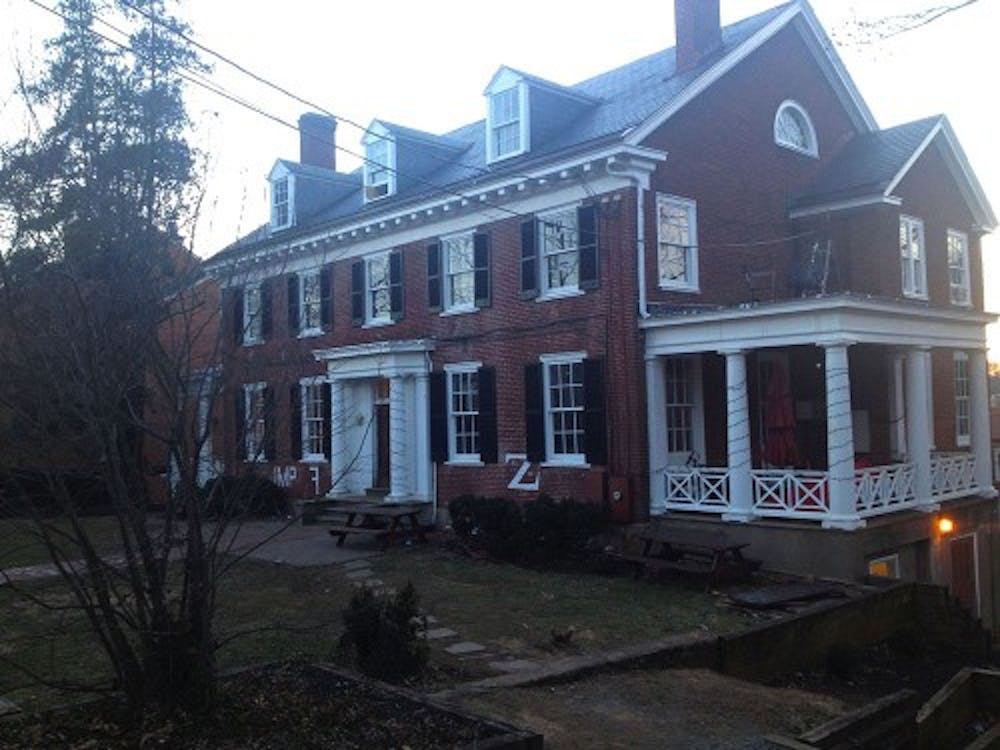As the Fall 2014 semester begins, the University’s chapter of the Pi Kappa Alpha fraternity is working to satisfy requirements issued by its International Fraternity, the University and the Inter-Fraternity Council in hopes of having its charter completely reinstated.
Last spring, the University terminated the fraternity’s Fraternal Organization Agreement following the discovery of dangerous practices during the pledging process. The University chapter is the Alpha, or the founding, chapter of PiKA fraternity. Shortly after losing the FOA, PiKA lost its charter with the international organization as well.
During the summer, PiKA appealed to the University as well as to the its international governing body and is now working under the stipulations of a provisional charter in order to regain good standing.
In a letter dated June 27 and addressed to University chapter president Michael Haines, the International Fraternity organization announced its May 19 decision to reinstate the chapter’s charter on a provisional basis.
In addition to receiving support from the International Fraternity, PiKA is also working with the University and the Inter-Fraternity Council. PiKA now has a provisional FOA agreement which will allow the fraternity to be fully reinstated within three semesters if the organization complies with IFC and University regulations.
“It is my understanding that the undergraduate chapter leadership, the International Fraternity and the chapter’s alumni have come up with what I will loosely call a plan for a reinstated undergraduate chapter under a probationary status,” Dean of Students Allen Groves said in a June email. “I am supportive of that approach, as is the student IFC president (to my knowledge), and I expect [a new FOA will be signed] by the start of the academic year.”
Tommy Reid, a fourth-year College student and IFC president, said he, Groves and representatives from the fraternity’s international organization met to present their cases for PiKA’s appeal process. Chapter leaders brought forth evidence including letters from alumni and parents of fraternity brothers to help bolster their case.
“The next month and a half [after reinstating the chapter] was dedicated to working closely with PiKA at U.Va. to make sure that they were ready to take on the rehabilitation it would require and working with the International Fraternity,” Reid said.
Reid said the chapter’s honesty surrounding its past actions played a large role in its reinstatement.
“They were not at all trying to make an excuse about the degree of their hazing charges,” he said. “They were honest and cooperative and straightforward during the entire investigation. They needed to own their actions. They understood what any presence of hazing meant for the [IFC] community, for their chapter, and their new members.”
Many of the more egregious hazing incidents occurred in years past, before current members joined the fraternity, Reid said.
“The PiKA situation is nuanced considerably,” he said. “The suspension of PiKA’s FOA was not the result of an isolated incident that happened this spring. We wanted to focus on not punishing the current students for what happened 5 years ago.”
In an April interview about the decision, Groves said he looked at the past two years in making his decision.
“I look at the recent history, which I define as two years, in terms of their compliance or other violations that raise concerns, and then as I say, I also look at what we have been doing recently in terms of our communications with leaders in the Greek system and what our expectations are around accountability,” he said.
Even though PiKA has now begun the process to fully regain its charter, it still must satisfy many requirements from the University, the Inter-Fraternity Council, and the International Fraternity.
“Each of those three organizations has specific stipulations that they would like to see from PiKA,” Reid said.
Requirements from the International Fraternity range from revising fraternity officer positions to the completion of philanthropic events and community service.
According to the June 27 letter, even with proper completion of these stipulations, PiKA will remain in a probationary period until August 31, 2015.
The international organization ordered that before the Alpha Chapter can engage in any other fraternity activities, it must complete a smaller set of stipulations, including forming an alumni advisory board, appointing chapter officers, fully initiating all new members, and attending the Pi Kappa Alpha International Convention.
One of the six requirements is a restructured system for fraternity membership.
“[T]hird- and fourth-year students will remain on early alumni status,” the letter reads. “Early alumni status is defined as members being placed on alumni-status, without the ability to participate in Fraternity activities for a period of three (3) years.”
Current members of PiKA leadership who are third- and fourth-year students will not be placed on early alumni status.
Reid said stipulations from the University, the Inter-Fraternity Council, and the International Fraternity largely will not negatively impact the experience of current and new members of PiKA.
“These people have an opportunity to fundamentally change a chapter at U.Va.,” Reid said. “What the [Inter-Fraternity Council] is focusing on in PiKA’s rehabilitation is that they are not only rehabbing their chapter in the short term. PiKA is also designing what the future might look like for many of these chapters as well.”
Reid emphasized that as PiKA undergoes marked changes, the general fraternity community at the University is evolving so that recruitment and membership is a safer, more valuable experience.
“The new member education process is changing because our practices in the past have been unsustainable,” Reid said. “In terms of their core experiences, every fraternity is changing.”







